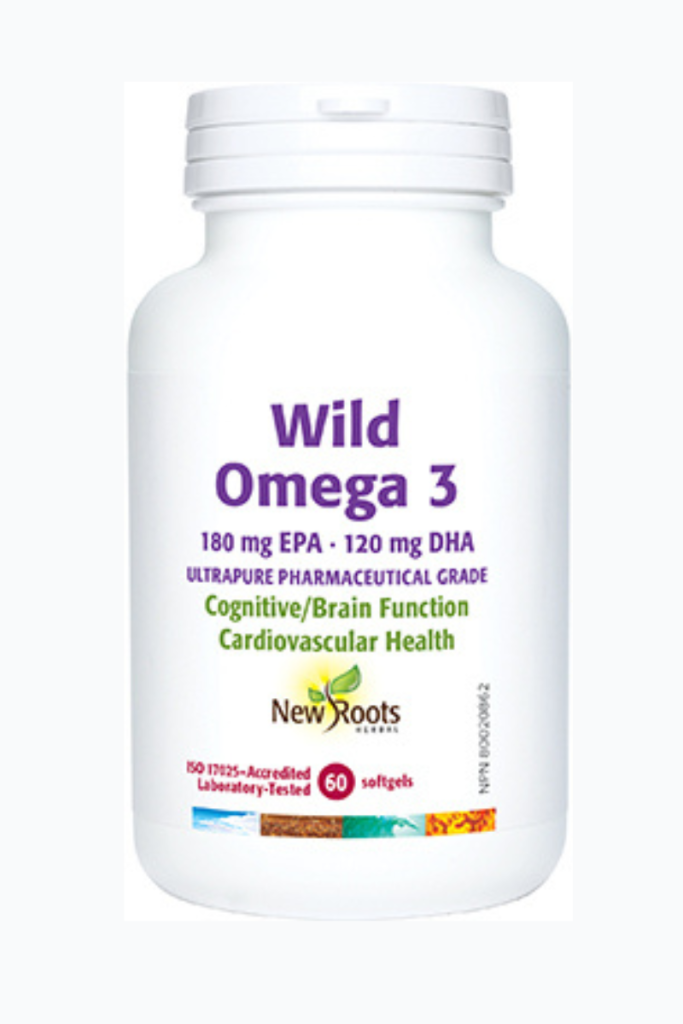Omega-3s are like the unsung heroes of the fatty acid world. They’re crucial for our heart, brain, and overall well-being. But here’s the kicker: our bodies can’t produce them. Seems like a design flaw to me, but that’s a discussion for another day. The point here is that we need Omega-3 in our lives, and it needs to come through either diet or supplements. A staggering 40% of Canadians are running low on these vital fats. And ladies, we need at least 500 milligrams of EPA and DHA (the two key types of Omega-3s) daily to keep our health in check.
Omega-3 fatty acids are not just any nutrient; they are pivotal in supporting various aspects of women’s health:
- Heart Health: Omega-3s help maintain a healthy heart, reducing the risk of cardiovascular diseases, which is crucial as heart disease is a leading cause of death among women.
- Mental Well-being: These fatty acids are linked to lower rates of depression and anxiety. Given that women are more likely to experience depression, Omega-3s can be an essential part of mental health care.
- Inflammation Reduction: Omega-3s have anti-inflammatory properties, beneficial for women suffering from conditions like rheumatoid arthritis, where inflammation plays a key role.
- Bone Health: With a higher risk of osteoporosis, women can benefit from Omega-3s as they are known to improve bone strength by boosting the amount of calcium in bones.
- Healthy Pregnancy: For expecting mothers, DHA, a type of Omega-3, is vital for the brain development of the fetus. It also supports a healthy gestational length, reducing the risk of premature births.
- Menstrual Pain Relief: Omega-3 supplements have been shown to reduce the intensity of menstrual pain, which can be a significant benefit for many women.
- Skin Health: Omega-3s can protect the skin from sun damage and promote a youthful complexion, addressing common skin concerns among women.

Challenges in Achieving Adequate Omega-3 Through Diet
If you’re anything like me, upon learning about the importance of Omega-3s, your first thought might be, “Easy, I’ll just eat more fish!” It’s a logical step, considering fish is a prime source of EPA and DHA, the Omega-3 stars. But here’s where it gets tricky. Not everyone is a fan of fish, and for those who are, the shadow of ocean pollution looms large. Concerns over mercury and other heavy metals in our seas make us think twice about loading our plates with fish. And while plant-based options like flaxseeds and chia seeds sound promising, they fall short in providing the EPA and DHA our bodies crave. It seems we’re caught between a rock and a hard place, doesn’t it?

Dr. Hartwick’s insights shed light on this conundrum, highlighting the risk of contaminants in both fish and lower-quality fish oil supplements. The thought of ingesting heavy metals with our Omega-3s is unsettling, to say the least. But before you swear off Omega-3s altogether, let’s explore how we can still reel in these essential fats without the unwanted catch.
Best Dietary Sources of Omega-3
To ensure we’re getting the best out of our Omega-3 sources, here’s a list of foods rich in these essential fats, offering a safer bet for our health:
- Fatty Fish: Salmon, mackerel, and sardines top the list, known for their high EPA and DHA content. Opting for wild-caught or sustainably farmed options can help mitigate pollution concerns.
- Algae Oil: A plant-based powerhouse for DHA, making it an excellent option for vegetarians and vegans.
- Walnuts: While they’re higher in ALA (another type of Omega-3), they’re still a valuable addition to a balanced diet.
- Chia Seeds: These tiny seeds pack a punch with ALA, fibre, and other nutrients.
- Hemp Seeds: Another fantastic plant-based source, hemp seeds offer a good balance of Omega-3 and Omega-6.
- Flaxseeds: Ground flaxseeds or flaxseed oil can boost your ALA intake, perfect for adding to smoothies or salads.
- Eggs: Specifically, those fortified with Omega-3, offering a convenient way to up your intake.
- Seaweed: Often overlooked, seaweed is a unique source of EPA and DHA, ideal for those following a plant-based diet.
The Importance of High-Quality Supplements
Let’s get real about our modern diets, and if anyone’s going to throw themselves under the bus, let it be me. Yesterday’s menu? Two large cappuccinos, an apple and cheese for a semblance of balance, with popcorn taking the lead role at dinner. Yes, I drop the ball on getting all the nutrients I need, and let’s be honest, ladies, I’m not the only one. But here’s the silver lining: we live in an era where supplements can pick up the slack on those less-than-perfect days.

This is where the magic of high-quality Omega-3 supplements comes into play. Choosing the right supplement isn’t just about grabbing the first bottle off the shelf; it’s about becoming a bit of a detective. We’re on the lookout for third-party testing and certifications that scream reliability, like the ISO 17025 standard. And it’s precisely here that New Roots Herbal steals the spotlight. Their unwavering commitment to purity and quality, supported by stringent laboratory testing, offers us a safety net. With New Roots Herbal, we’re not just taking a supplement; we’re making a smart, informed choice that lets us enjoy all the Omega-3 benefits without fretting over potential contaminants. It’s a game-changer for those of us striving to bolster our intake safely and effectively, ensuring we’re at our best, even when our diets aren’t.

So, it’s clear why Omega 3 is so important. It’s all about keeping the creaks and groans at bay, making sure our tickers are ticking right, and our brains are as sharp as our wit. Getting enough from just our meals can be a bit of a tall order, kind of like expecting popcorn to cover all our nutritional bases (guilty as charged).

But here’s a nugget of wisdom: our journey to wellness isn’t just about what’s on our plates or in our supplement stash. It’s also about how we recharge, laugh, and live. Remember that chat about “Self-Care Reset Strategies That Will Stick“? It’s all part of the same gig. So, let’s keep it real, keep it balanced, and give our bodies the Omega-3 goodness it needs.